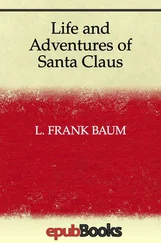Charles Dickens - Life And Adventures Of Martin Chuzzlewit
Здесь есть возможность читать онлайн «Charles Dickens - Life And Adventures Of Martin Chuzzlewit» весь текст электронной книги совершенно бесплатно (целиком полную версию без сокращений). В некоторых случаях можно слушать аудио, скачать через торрент в формате fb2 и присутствует краткое содержание. Жанр: Классическая проза, на английском языке. Описание произведения, (предисловие) а так же отзывы посетителей доступны на портале библиотеки ЛибКат.
- Название:Life And Adventures Of Martin Chuzzlewit
- Автор:
- Жанр:
- Год:неизвестен
- ISBN:нет данных
- Рейтинг книги:5 / 5. Голосов: 1
-
Избранное:Добавить в избранное
- Отзывы:
-
Ваша оценка:
- 100
- 1
- 2
- 3
- 4
- 5
Life And Adventures Of Martin Chuzzlewit: краткое содержание, описание и аннотация
Предлагаем к чтению аннотацию, описание, краткое содержание или предисловие (зависит от того, что написал сам автор книги «Life And Adventures Of Martin Chuzzlewit»). Если вы не нашли необходимую информацию о книге — напишите в комментариях, мы постараемся отыскать её.
Life And Adventures Of Martin Chuzzlewit — читать онлайн бесплатно полную книгу (весь текст) целиком
Ниже представлен текст книги, разбитый по страницам. Система сохранения места последней прочитанной страницы, позволяет с удобством читать онлайн бесплатно книгу «Life And Adventures Of Martin Chuzzlewit», без необходимости каждый раз заново искать на чём Вы остановились. Поставьте закладку, и сможете в любой момент перейти на страницу, на которой закончили чтение.
Интервал:
Закладка:
Martin and his friend followed them to the door below, and were about to pursue their walk, when the latter stopped, and asked, with some hesitation, whether that young man was to be trusted?
“Mark! oh certainly! with anything.”
“You don't understand me—I think he had better go with us. He is an honest fellow, and speaks his mind so very plainly.”
“Why, the fact is,” said Martin, smiling, “that being unaccustomed to a free republic, he is used to do so.”
“I think he had better go with us,” returned the other. “He may get into some trouble otherwise. This is not a slave State; but I am ashamed to say that a spirit of Tolerance is not so common anywhere in these latitudes as the form. We are not remarkable for behaving very temperately to each other when we differ; but to strangers! no, I really think he had better go with us.”
Martin called to him immediately to be of their party; so Cicero and the truck went one way, and they three went another.
They walked about the city for two or three hours; seeing it from the best points of view, and pausing in the principal streets, and before such public buildings as Mr Bevan pointed out. Night then coming on apace, Martin proposed that they should adjourn to Mrs Pawkins's establishment for coffee; but in this he was overruled by his new acquaintance, who seemed to have set his heart on carrying him, though it were only for an hour, to the house of a friend of his who lived hard by. Feeling (however disinclined he was, being weary) that it would be in bad taste, and not very gracious, to object that he was unintroduced, when this open-hearted gentleman was so ready to be his sponsor, Martin—for once in his life, at all events—sacrificed his own will and pleasure to the wishes of another, and consented with a fair grace. So travelling had done him that much good, already.
Mr Bevan knocked at the door of a very neat house of moderate size, from the parlour windows of which, lights were shining brightly into the now dark street. It was quickly opened by a man with such a thoroughly Irish face, that it seemed as if he ought, as a matter of right and principle, to be in rags, and could have no sort of business to be looking cheerfully at anybody out of a whole suit of clothes.
Commending Mark to the care of this phenomenon—for such he may be said to have been in Martin's eyes—Mr Bevan led the way into the room which had shed its cheerfulness upon the street, to whose occupants he introduced Mr Chuzzlewit as a gentleman from England, whose acquaintance he had recently had the pleasure to make. They gave him welcome in all courtesy and politeness; and in less than five minutes” time he found himself sitting very much at his ease by the fireside, and becoming vastly well acquainted with the whole family.
There were two young ladies—one eighteen; the other twenty—both very slender, but very pretty; their mother, who looked, as Martin thought much older and more faded than she ought to have looked; and their grandmother, a little sharp-eyed, quick old woman, who seemed to have got past that stage, and to have come all right again. Besides these, there were the young ladies” father, and the young ladies” brother; the first engaged in mercantile affairs; the second, a student at college; both, in a certain cordiality of manner, like his own friend, and not unlike him in face. Which was no great wonder, for it soon appeared that he was their near relation. Martin could not help tracing the family pedigree from the two young ladies, because they were foremost in his thoughts; not only from being, as aforesaid, very pretty, but by reason of their wearing miraculously small shoes, and the thinnest possible silk stockings; the which their rocking-chairs developed to a distracting extent.
There is no doubt that it was a monstrous comfortable circumstance to be sitting in a snug, well-furnished room, warmed by a cheerful fire, and full of various pleasant decorations, including four small shoes, and the like amount of silk stockings, and—yes, why not?—the feet and legs therein enshrined. And there is no doubt that Martin was monstrous well-disposed to regard his position in that light, after his recent experience of the Screw, and of Mrs Pawkins's boarding-house. The consequence was that he made himself very agreeable indeed; and by the time the tea and coffee arrived (with sweet preserves, and cunning tea-cakes in its train), was in a highly genial state, and much esteemed by the whole family.
Another delightful circumstance turned up before the first cup of tea was drunk. The whole family had been in England. There was a pleasant thing! But Martin was not quite so glad of this, when he found that they knew all the great dukes, lords, viscounts, marquesses, duchesses, knights, and baronets, quite affectionately, and were beyond everything interested in the least particular concerning them. However, when they asked, after the wearer of this or that coronet, and said, “Was he quite well?” Martin answered, “Yes, oh yes. Never better;” and when they said, “his lordship's mother, the duchess, was she much changed?” Martin said, “Oh dear no, they would know her anywhere, if they saw her to-morrow;” and so got on pretty well. In like manner when the young ladies questioned him touching the Gold Fish in that Grecian fountain in such and such a nobleman's conservatory, and whether there were as many as there used to be, he gravely reported, after mature consideration, that there must be at least twice as many; and as to the exotics, “Oh! well! it was of no use talking about THEM; they must be seen to be believed;” which improved state of circumstances reminded the family of the splendour of that brilliant festival (comprehending the whole British Peerage and Court Calendar) to which they were specially invited, and which indeed had been partly given in their honour; and recollections of what Mr Norris the father had said to the marquess, and of what Mrs Norris the mother had said to the marchioness, and of what the marquess and marchioness had both said, when they said that upon their words and honours they wished Mr Norris the father and Mrs Norris the mother, and the Misses Norris the daughters, and Mr Norris Junior, the son, would only take up their permanent residence in England, and give them the pleasure of their everlasting friendship, occupied a very considerable time.
Martin thought it rather stange, and in some sort inconsistent, that during the whole of these narrations, and in the very meridian of their enjoyment thereof, both Mr Norris the father, and Mr Norris Junior, the son (who corresponded, every post, with four members of the English Peerage), enlarged upon the inestimable advantage of having no such arbitrary distinctions in that enlightened land, where there were no noblemen but nature's noblemen, and where all society was based on one broad level of brotherly love and natural equality. Indeed, Mr Norris the father gradually expanding into an oration on this swelling theme, was becoming tedious, when Mr Bevan diverted his thoughts by happening to make some causal inquiry relative to the occupier of the next house; in reply to which, this same Mr Norris the father observed, that “that person entertained religious opinions of which he couldn't approve; and therefore he hadn't the honour of knowing the gentleman.”Mrs Norris the mother added another reason of her own, the same in effect, but varying in words; to wit, that she believed the people were well enough in their way, but they were not genteel.
Another little trait came out, which impressed itself on Martin forcibly. Mr Bevan told them about Mark and the negro, and then it appeared that all the Norrises were abolitionists. It was a great relief to hear this, and Martin was so much encouraged on finding himself in such company, that he expressed his sympathy with the oppressed and wretched blacks. Now, one of the young ladies—the prettiest and most delicate—was mightily amused at the earnestness with which he spoke; and on his craving leave to ask her why, was quite unable for a time to speak for laughing. As soon however as she could, she told him that the negroes were such a funny people, so excessively ludicrous in their manners and appearance, that it was wholly impossible for those who knew them well, to associate any serious ideas with such a very absurd part of the creation. Mr Norris the father, and Mrs Norris the mother, and Miss Norris the sister, and Mr Norris Junior the brother, and even Mrs Norris Senior the grandmother, were all of this opinion, and laid it down as an absolute matter of fact—as if there were nothing in suffering and slavery, grim enough to cast a solemn air on any human animal; though it were as ridiculous, physically, as the most grotesque of apes, or morally, as the mildest Nimrod among tuft-hunting republicans!
Читать дальшеИнтервал:
Закладка:
Похожие книги на «Life And Adventures Of Martin Chuzzlewit»
Представляем Вашему вниманию похожие книги на «Life And Adventures Of Martin Chuzzlewit» списком для выбора. Мы отобрали схожую по названию и смыслу литературу в надежде предоставить читателям больше вариантов отыскать новые, интересные, ещё непрочитанные произведения.
Обсуждение, отзывы о книге «Life And Adventures Of Martin Chuzzlewit» и просто собственные мнения читателей. Оставьте ваши комментарии, напишите, что Вы думаете о произведении, его смысле или главных героях. Укажите что конкретно понравилось, а что нет, и почему Вы так считаете.









